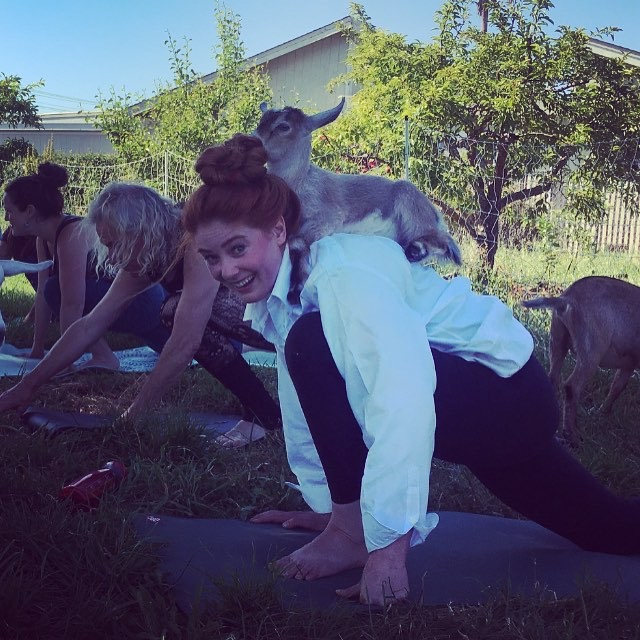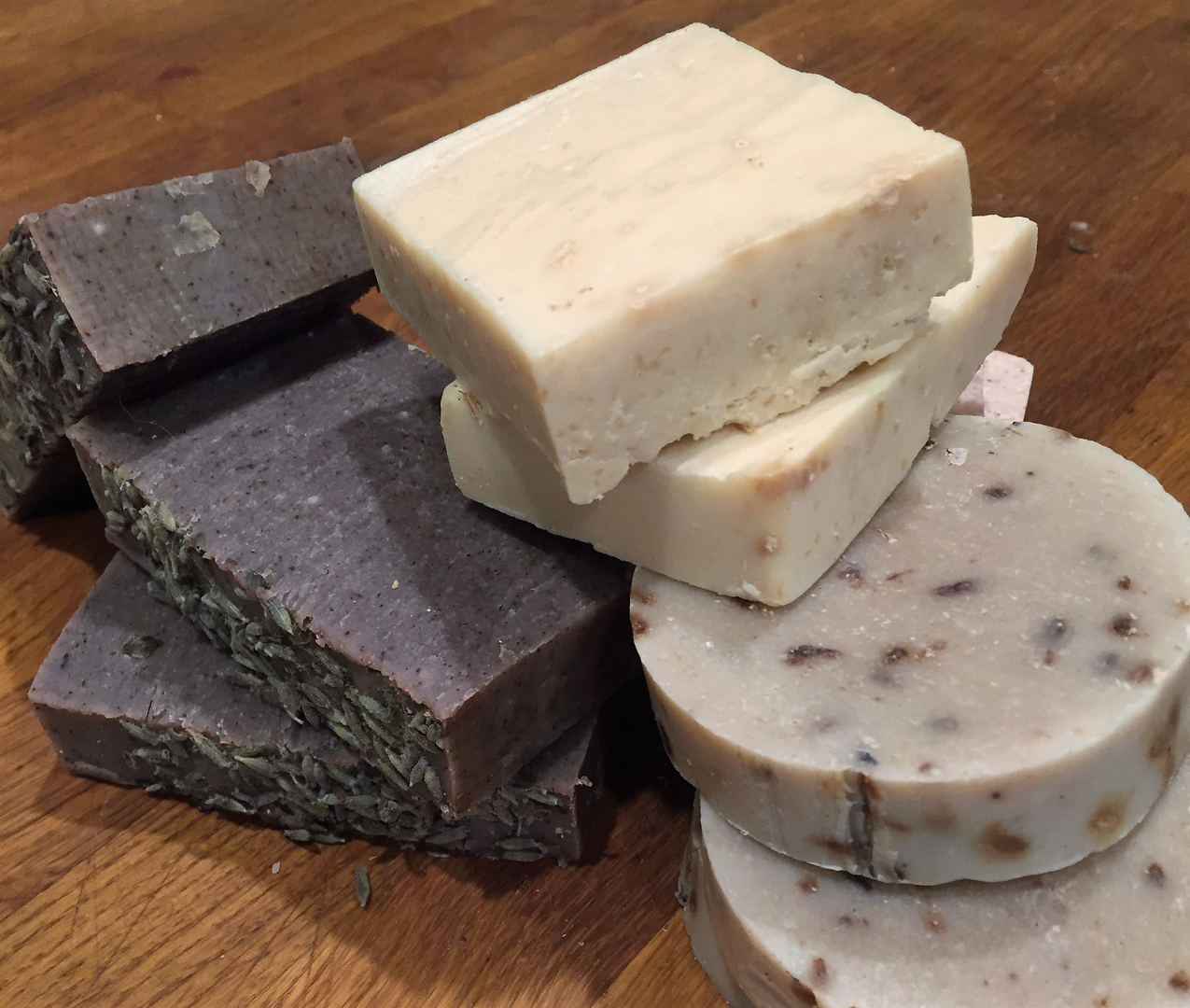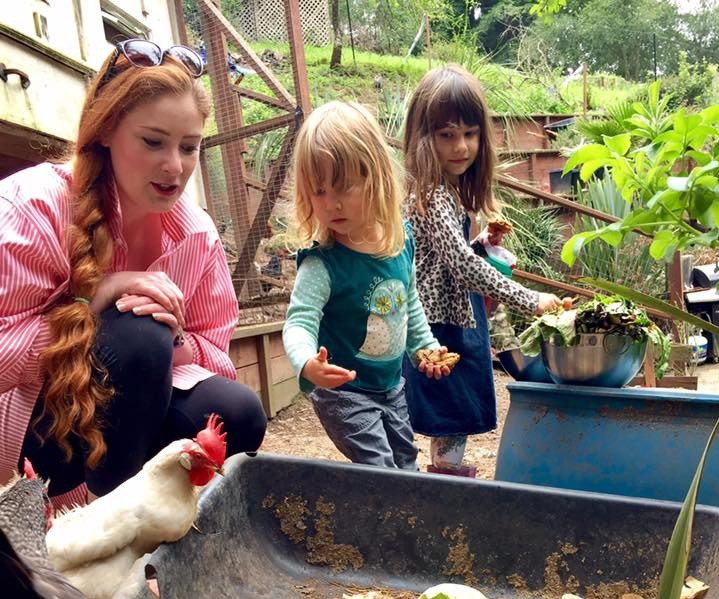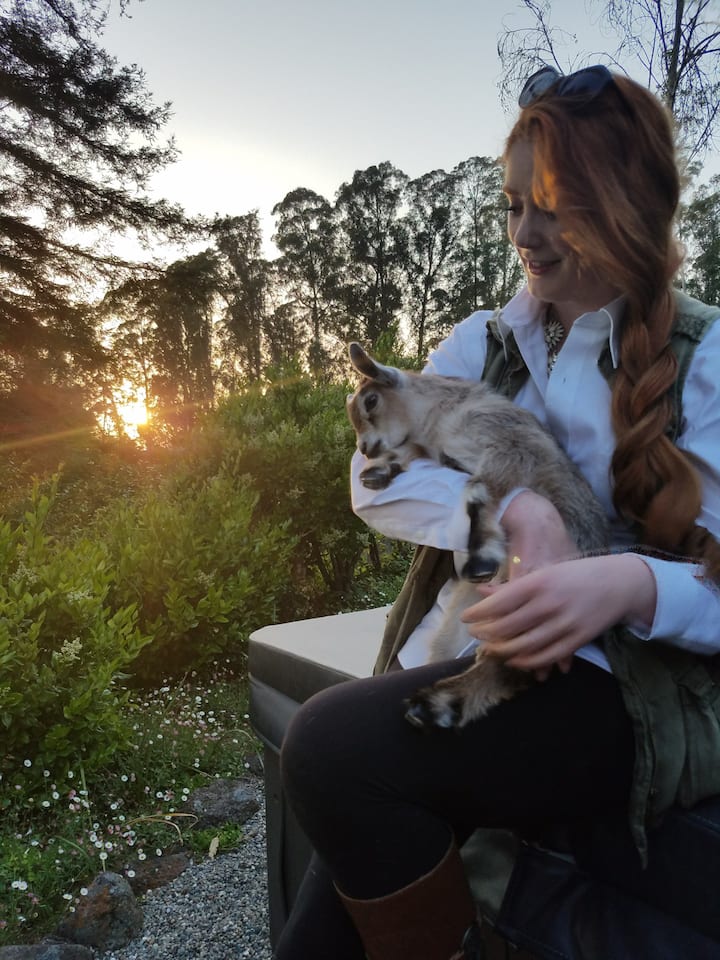About Us
Kinderwood Origins
The name “Kinderwood” is an homage to where, and how, we started on our journey of sustainability. Nestled in the Coastal Redwoods lies our little ranchette, where our herd of “Kinders” (the German word for children & the breed of goat that we raise) first wandered the wooded hills and graced our lives with their love and affection.
Farm Stays & Classes!
Book a stay, inquire about events, join us for goat yoga, or follow us on Facebook and Instagram for regular farm fun and announcements.
The Farm

Our little farm set roots in 2010 when we bought property in the Aptos Hills. We have been renovating the house and hillside to work within our ambitions and interests. We began by taking a chicken keeping class in the summer of 2015 and officially opened up shop in 2017. Everything that we are doing now has come about through a lot of love and hard work. Our little Kinders, a special breed of goat, are dear to our hearts and our farm’s namesake.

We are so excited to be part of a local, sustainable food movement, that is obviously progressing and will begin to flourish, especially with the excitement and encouragement of other loving and thoughtful community members.

As newbies to the “farm life”, with a ton of ambition and a lot of optimistic realism we focus our life around learning as much as we possibly can, as quickly as we can. We work hard to find mentors and absolutely love mentoring others on the conscious stewardship of land and animal care. All surfaces in our home are usually filled up with educational books about the many facets of permaculture & organic farming.

Hi! I’m Lauren
Was born and raised in Santa Cruz, mostly Aptos, and her interests were always more water based, being an avid sailor. You can imagine how different and exciting it is to be working hard to utilize the land. She graduated from the exceptional Culinary Arts and Hospitality Management program at Cabrillo College in 2010, Started the catering company Something To Taste, & now enjoys sharing her creations with guests and friends.
Hi!
…and I’m Macdonald
As one might expect, was destined to be a farmer. Having moved to Santa Cruz in 1993, he has pursued many artistic interests, musically and visually. Through research and practice, he has become an incredibly handy builder and worker of the land. He could not be more grateful for the opportunity to raise animals healthfully and happily, with the care that all of God’s creatures deserve.
Press:
-
Good Times- https://goodtimes.sc/columns/wellness/goat-yoga-wins-santa-cruz-converts/
-
Cabrillo College– https://www.cabrillo.edu/academics/cahm/grads-at-work.html#cooking
-
Growing Up in Santa Cruz- https://growingupsc.com/goat-yoga/
-
Refinery 29– https://www.refinery29.com/en-us/monterey-itinerary-vacation-cost
-
Santa Cruz Style Magazine– http://www.santacruzstyle.net/fall_2018/magazine/page#52
-
Calaveras Enterprise- http://www.calaverasenterprise.com/news/article_c8928c4e-f972-11e8-b7be-8b82f85cd1ff.html

Frequently Asked Questions
What is goat yoga?
While it may seem unconventional, baby goats and yoga go hand in hand on a spiritual level. Yoga is the training of the body and mind toward self awareness and enlightenment. The meaning of the word yoga, is “union”. Through this union, we have found that baby goats, and their unabashed enthusiasm for the present moment, can assist the open heart in reaching this higher consciousness. Our classes consist of a gentle yoga class that encourages interaction between the goats and yogis while allowing the goats to interact at their leisure.
What happens when the baby goats are too big for yoga?
One of the cool things about our goats is they stay “yoga sized” for multiple months, while we continue to bottle feed them. After they get too big, some join our herd in the forest where they help to reduce the very real threat of wildfires while others are sold or donated to other small farms, homesteads, landscape management herds, schools, and pet homes (each of which are vetted before they receive any goats).
Are the babies allowed to nurse the mothers?
Definitely! We practice a hybrid feeding schedule of babies nursing from their mothers and getting bottle fed by us. We find this provides the best of both worlds.
Are the mothers allowed to be with their babies?
Yup, they sure are! Our herd is on a rotational grazing plan and they all interact with each other.
How often do the females reproduce?
Our goats reproduce naturally, and we take care to make sure they aren’t bred too often. Gestation is 5 months and that ends up being around 9-18 months between breedings. Our ladies are wonderful mothers and producers, so we like them to get a healthy amount of rest and relaxation to recharge.
What happens to the moms when they can't give birth any longer?
They become pets and/or land management. Our goats always have a home here or at another farm. Before raising goats, we started fostering dogs for a local rescue and that experience has proved to be incredibly valuable in making connections with people who are seeking to add some animal love to their lives. Goats make amazing companions and are fantastic landscapers.
Why we choose to disbud our herd?
The reason for disbudding is safety, and the safety of our goats as well as those who interact with them is very important to us. Disbudding removes the potential for goats to accidentally hurt us, each other or themselves. Horns also have the unfortunate tendency of getting stuck in fences. This is dangerous because they can injure themselves trying to get unstuck. We take the stewardship and care of our animals very seriously. They are a part of our family and they deserve to be treated with as much respect as any human.
How often do the females reproduce?
Our goats reproduce naturally, and we take care to make sure they aren’t bred too often. Gestation is 5 months and that ends up being around 9-18 months between breedings. Our ladies are wonderful mothers and producers, so we like them to get a healthy amount of rest and relaxation to recharge.
Lastly…
we want to be clear that we breed the same number of goats whether or not we are hosting goat yoga classes. We breed goats for the private use of our little homestead dairy. Babies are a lovingly adorable product of that process. Hosting goat yoga classes is important to us for many reasons. Bringing joy, love, and the amazing healing benefits of animal therapy to people feels like a huge blessing. Also, the socialization of the babies, getting to interact with a large number of people is a massive help in raising exceptionally tame and gentle goats. Tame and gentle goats are much more likely to find and keep the very best of homes and lead the very best of lives.

